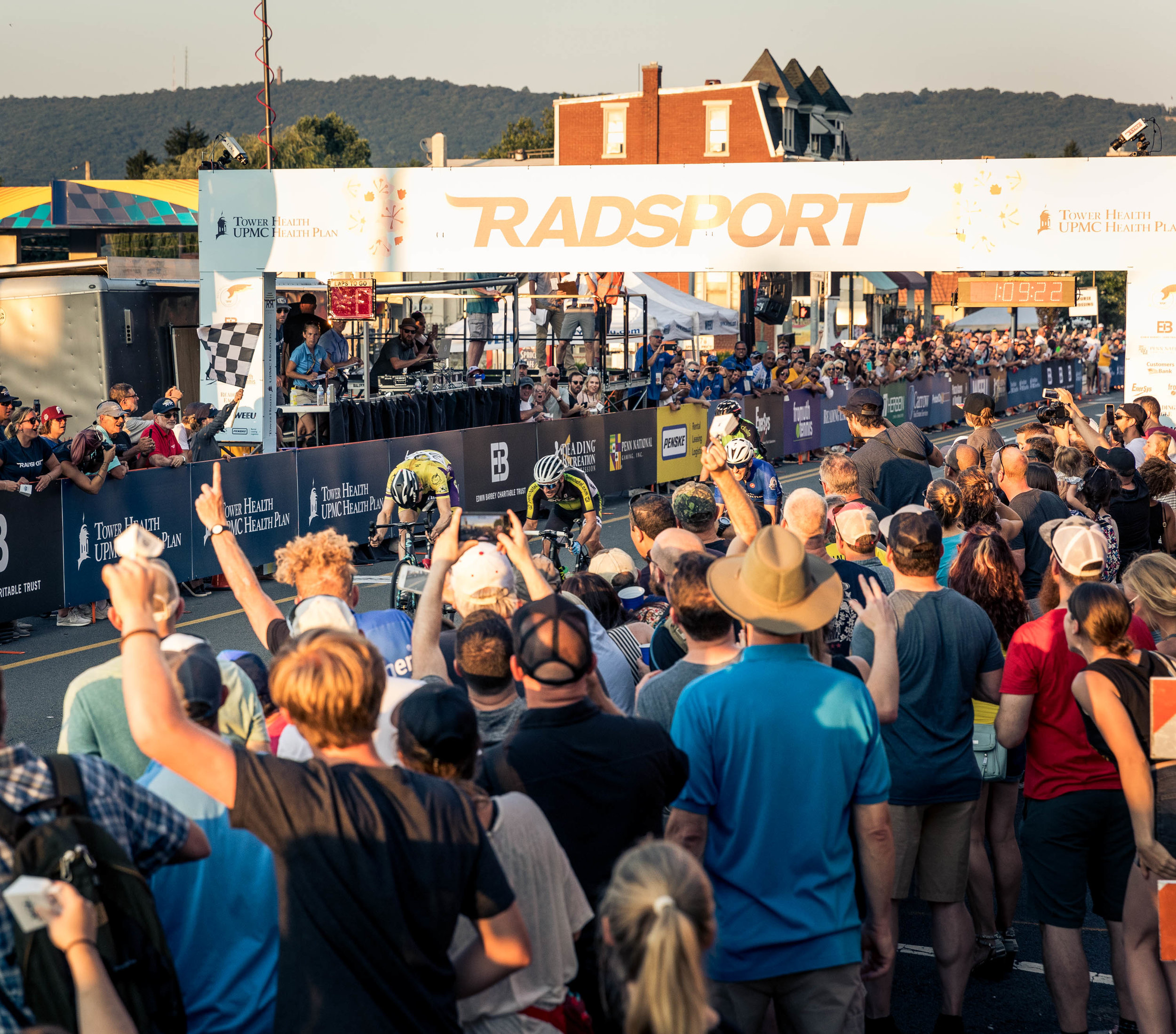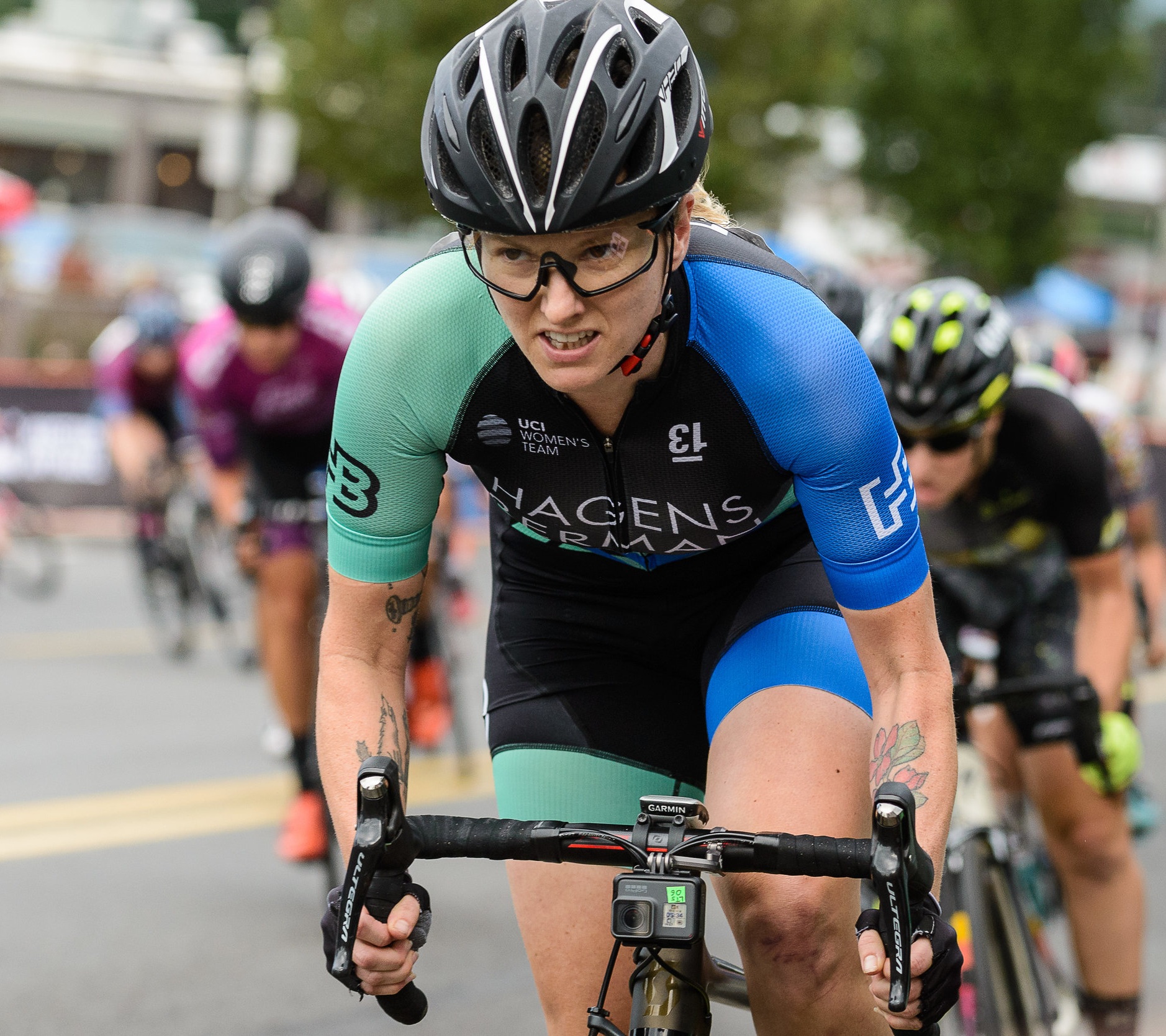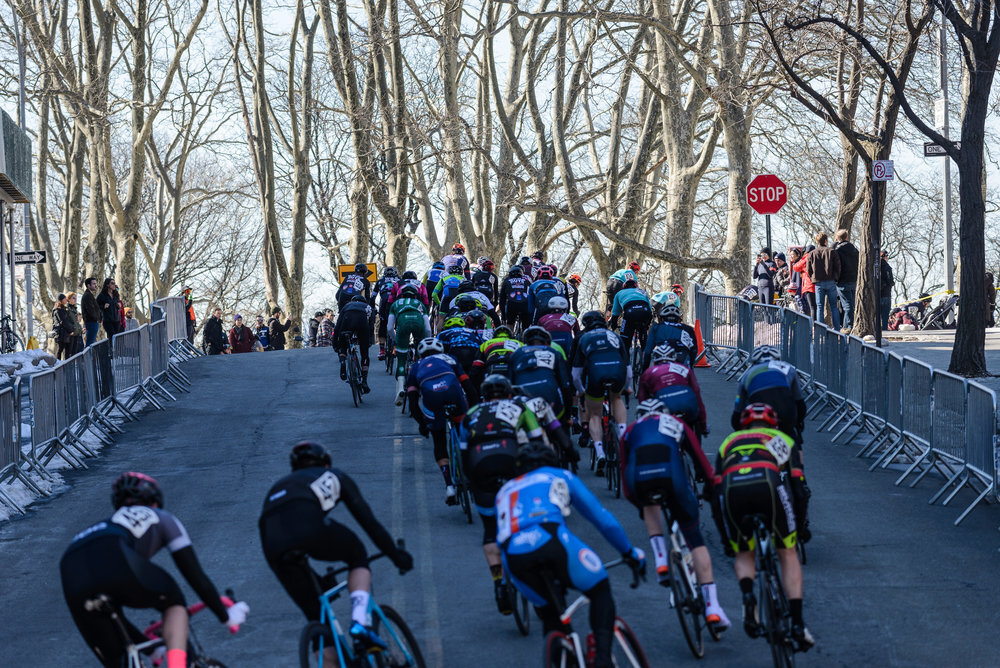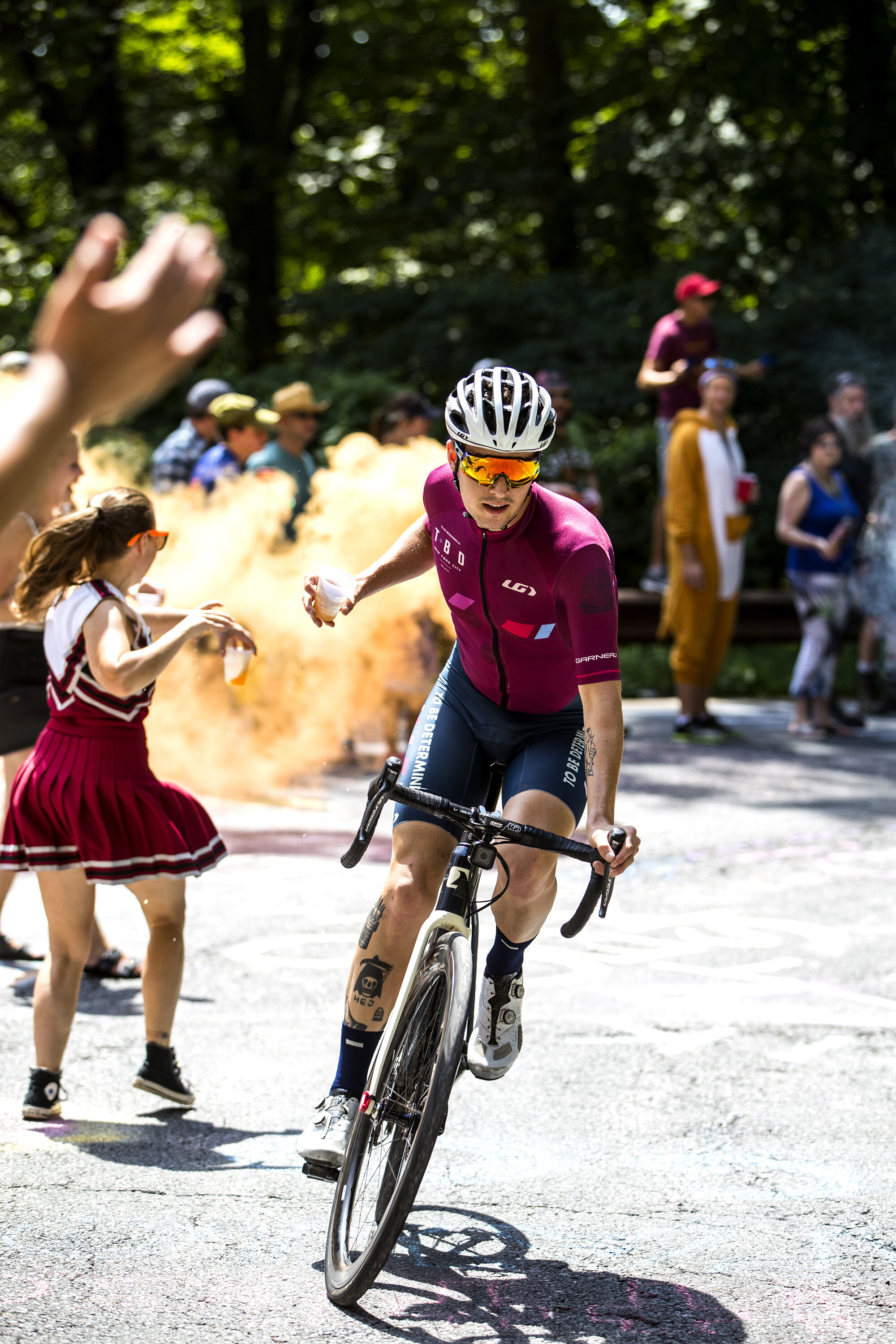The Next Generation of Bike Racing? An Introduction to Reading Radsport
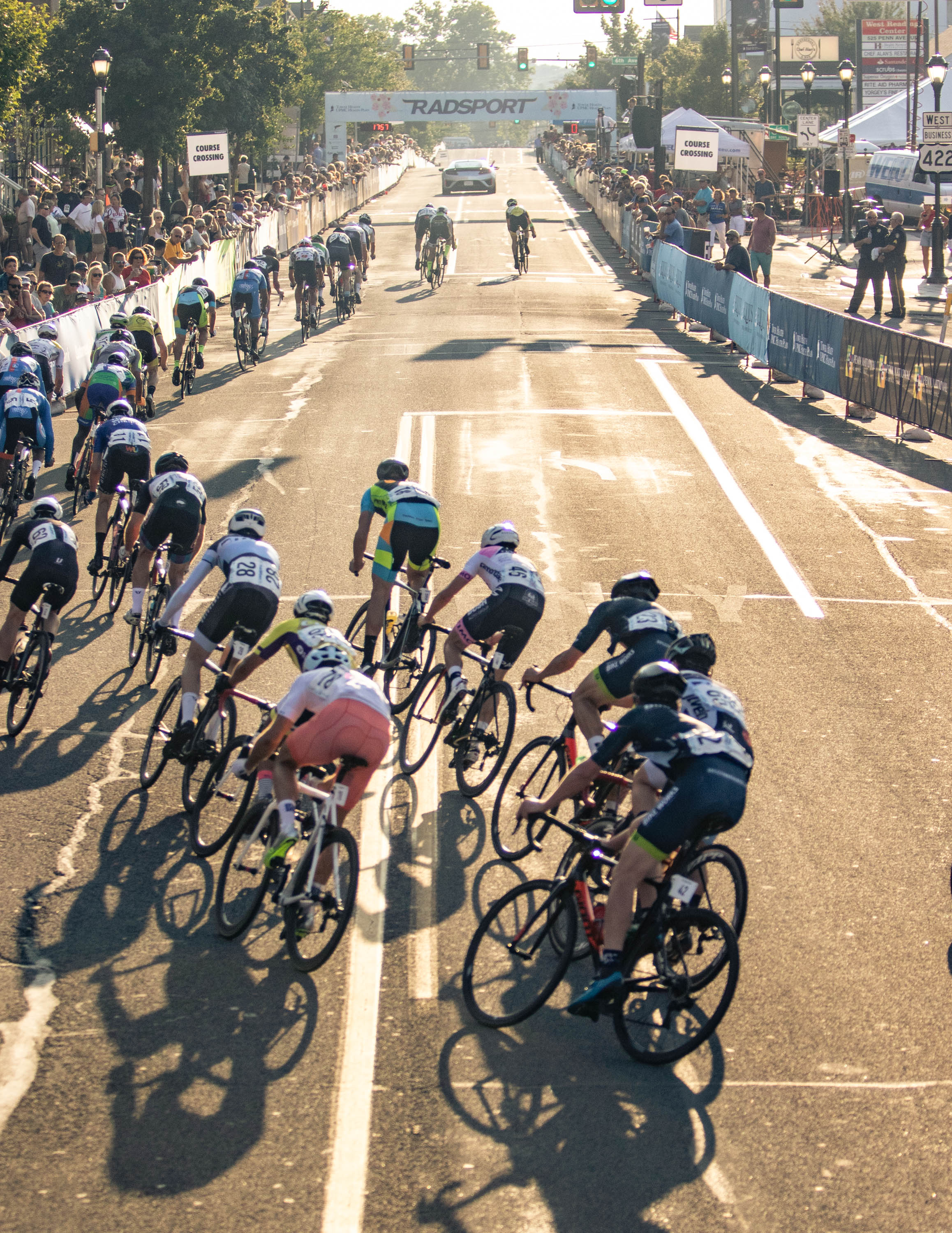
In August of last year, as a few of us attended the Tour de Millersburg Stage Race (a known TBD favorite), we heard a lot of buzz around a particular race. A race with a big purse that was drawing in some big talent from across the Northeast region. We heard that it was some sort of large, high-production event. It was the talk of the weekend amongst many NYC-based bike racing circles. It was far away, but apparently worth the trek. That race was Reading Radsport Festival.
At the time, we only knew there was a crit. As it turns out, there is a lot more to it. There’s a Hill Climb, a Cross race, and a MTB event. Beyond that, though, there is a story. Earlier this year, we crossed paths with the Reading Radsport organizers on Twitter. A few weeks and some emails and phone calls later, we had the pleasure of sitting down with Gabe and Kacey Lloyd from the Reading Radsport crew for an interview. We walked away from that interview wondering whether Reading Radsport might be a formula for success amidst all of the challenges we have been writing about in the State of the Sport and Race Director Diaries. In a multi-part interview, we’ll explore how Reading Radsport Festival came to be and what they’re doing to change the game of event promotion.
Reading Radsport, Part I: An Introduction
Gabe and Kacey Lloyd are two of the masterminds behind Reading Radsport, which is an understatement. They excelled as racers and now do so as organizers, race directors, and commentators. They know what hard work is like on both sides of the barricades. They live and breathe bike racing, and talk about it with a level of passion that can only be described as inspiring. At a time when bike racing is considered at risk by many, Kacey and Gabe are differentiating themselves and their events with a fresh, unique perspective on the sport. We had a long conversation with Gabe and Kacey, so we have decided to split it up into three parts. Part I - and introduction to Gabe and Kacey, and how the Reading Radsport Festival came to be, follows below.
Gabe and Kacey Lloyd. Photo: Sebastian Vidal
TBD: To set the stage: tell us a little about your cycling backgrounds - how did you get into cycling in the first place?
Kacey: I got into this sport because of velodrome racing, or rather, exposure to a velodrome. I had an uncle who had a friend that was racing at a velodrome in Michigan, which is where I'm from. They invited us out and my family went out to see it. And it’s a bit of a spectacle because that track in Michigan is a 200 meter wood track. So it's got, you know, 45 degree banking from the turns, it looks super intimidating, it's quite small. And I just wanted to do it to say that I had done it because even after watching the whole night of people racing on the track, I was still mystified that the bikes stayed on what's very steep walls. So it was like, “I want to do that,” just kind of to say that I've done it. And then, I went out and tried it. The next year, I went back and tried it again. And that kind of led to my addiction to cycling. And that snowballed into racing, and then all the rest of it.
“She also got six national titles along the way. In cyclocross, road and track. So a lot of experience and she’s the first winner of the Red Hook Crit! ”
Photo: Sebastian Vidal
Gabe: My dad gave me some money for a stereo in college and I ended up buying a bike with it. And it was like some crappy Cannondale CAAD4 with, like, nine speed on it. And I just rode the crap out of it. And it was really cool. I jumped into some races after actually graduating undergrad, and did pretty well and got really hooked and just sort of kept going. I was living in New York at the time, and so I did all the CRCA stuff, Central Park and Prospect Park, and then I started doing NRC stuff. And I got pretty good. Not as good as Kacey, but decent. And then I moved out to T-Town to race on the track, which was really amazing. I wish I had started racing on the track a lot sooner. I also raced a lot of cyclocross back in the day. So I think we've both raced a lot of different disciplines in sport. And yeah, it's it's really helped us as far as where we are today.
Photo: Erika Vecchio
TBD: So, how did your background as racers flow into working behind the scenes at bike races and ultimately running bike races?
Kacey: I would say really through friends, it kind of happened mainly through the Red Hook Crit, and then a smaller event, but a local community event that's called Fifth Street Cross. It's like a training series of cross races that we run in the fall.
So Red Hook Crit, I fell into being in New York for the first year of the event. David Trimble, who puts on that event, one of his sisters was at college with me and needed a ride to New York City for his birthday party. But unbeknownst to me, there was a bike race involved. And she made me bring my track bike, which I was a bit mixed on, because, you know, I thought that I was bringing it to ride on the velodrome in New York. But it turns out, it was around streets, which I had never done before. So, you know, that was a really cool experience for me, but I kind of fell into that group, and then had so much fun that I kept returning back to it. I was racing [the Red Hook Crit] series, up until 2012. That was the first year that I almost got cut from the race. Every year prior to that I was in contention for the top 10 with the men, because at that point, it was just a coed field. If I'm not going to actually be competitive, I'm not really interested in being involved. So I was like, “I'm not going to race this race anymore, it's grown too much. It's gotten too fast. And I can't compete any longer with the men.” It was at that point that David actually asked me to come direct the women's race, which he started in 2013.
Gabe: How we went from racing to promoting as athletes, traveling the world and seeing a lot of different productions along the way and growing through the sport really influences how we view races and events. We were both beginners at one point. My struggle through the sport as an athlete, compared to Kacey's has actually been really influential in my experience. Because I wasn't as good. So like, I really had to learn the sport, I really had to learn how to get results and get my USA cycling points to upgrade through the system. And then I jumped over to Europe for a summer and raced in Belgium, just getting my head kicked in every week. That really helped me when I came back to race on the NRC circuit for a few years and do USA Crits when it was new. So I think doing that and then transitioning into working Red Hook Crit, just as a volunteer, just because we wanted to help David out, is sort of a really interesting trajectory. I didn't get into bike racing to become a promoter. I got into bike racing, because I really loved it. And now I'm trying to figure out how to continue that stoke, for new people.
Photo: Dan Chabanov (@danchabanov)
TBD: What drove the creation of Reading Radsport, who was involved in like the idea of making it happen? Like, what's the story?
Gabe: Well, there’s sort of the end of one story, which led to the beginning of ours. So there was a bike race in Reading, PA for a number of years (the Reading 120, more on this later), which a lot of athletes really liked. It was very challenging to continue that, but the community still wanted to see a bike race continue. And there's a local nonprofit in the area called the Reading Recreation Commission, which feeds ~90,000 meals per year to kids in Reading. So they have a really significant impact on the daily lives of a lot of the community and they were thinking that a healthy, free public sporting event for people is a great way to inspire kids to be active and be healthy. So they wanted a cycling event to continue. And because of the work that we had just started with the Red Hook Crit two-three years ago now, those community members reached out and said, “Hey, we'd like to run a professional cycling event, but we can't do the whole road race model. Can you guys do something for us that's different?” So we are essentially hired by the Reading Recreation Commission to produce a bike race.
Kacey: The whole thing really was a community effort. And the first year, 2017, was pulled together in seven weeks. So it was a massive undertaking, I didn't sleep. [The old original bike race] went through something like 22 boroughs and counties or municipalities. So working with all the police chiefs and the boroughs and the businesses to make all of that happen was complicated. Because the pre-existing event that had originally been scheduled was for a certain date, and they still wanted to fill that date for that year, we were brought in eight weeks out to be like “Hey, can you do something?” And we put together a quick idea, like in a week, of what we could do. They said, “Let’s go!” It was a very tight timeline that would not have been possible for me without all that support from all those people that were on that committee and other connections they had. You know, almost every permit was late! I mean, that's like not even within the window required to close roads and whatnot. They all say 60 days notice, but we didn't have 60 days! So it was a very quick turnaround, and the community has continued to be really supportive in that way. So, it was definitely an event that was spurred by the community. And it continues to be well supported by the community.
Photo: Sebastian Vidal
Gabe: Radsport goes through three [counties], just for our two day event. And that's complicated enough. So I can't imagine going through 22 and making everybody happy and getting that type of infrastructure in place in a way that's sustainable. So honestly, hats off to them for even getting it going for a few years. But European style models of bike racing in America are very, very challenging.
Kacey: It's super challenging in this climate. Because they're very expensive to produce, and you're never going to make that money back in entry fees. So it was the sustainability of that model I believe is hard at this time. It's unfortunate. Look at the Philly bike race, an awesome circuit race that had tons of history behind it. And it just became cost prohibitive. You know, everything over time, like police costs and more expensive security concerns, everything. [Everything] comes with dollar signs. So it makes it really hard.
Photo: Dan Chabanov (@danchabanov)
Up Next in Part II: How Radsport is changing the model
European style models of bike racing are very difficult in America indeed. Almost impossible, some would say. As most race directors and promoters know, it all comes down to cash. In Part II of our interview, we’ll get into Reading Radsport’s unique “Race Festival” model, how they work with Professional teams, and how the math works out. Stay tuned to the Journal as we publish Parts II and III in rapid fire succession.
The event that Reading Radsport directly replaced and the one we are referring to is the Reading 120. Reading 120 was a restart of the original Univest Grand Prix, which dates back to 1998. Same promoter, different area. Reading 120 was a 122-mile UCI race through Berks County in 2015 and 2016.
Flashbacks: The Reading 120 and the Univest Grand Prix
“Past Univest Grand Prix participants include 2011 Grand Tour stage winners Tyler Farrar (Tour de France), Juan José Haedo (Vuelta a España), 2005 world road champion Tom Boonen (runner-up as an amateur in 1999), and 2003 Under 23 world road race champion Sergey Lagutin.”
Univest Grand Prix Press Release on November 9, 2011
Born and raised in Puerto Rico, I race road for To Be Determined and work in technology in NYC.










